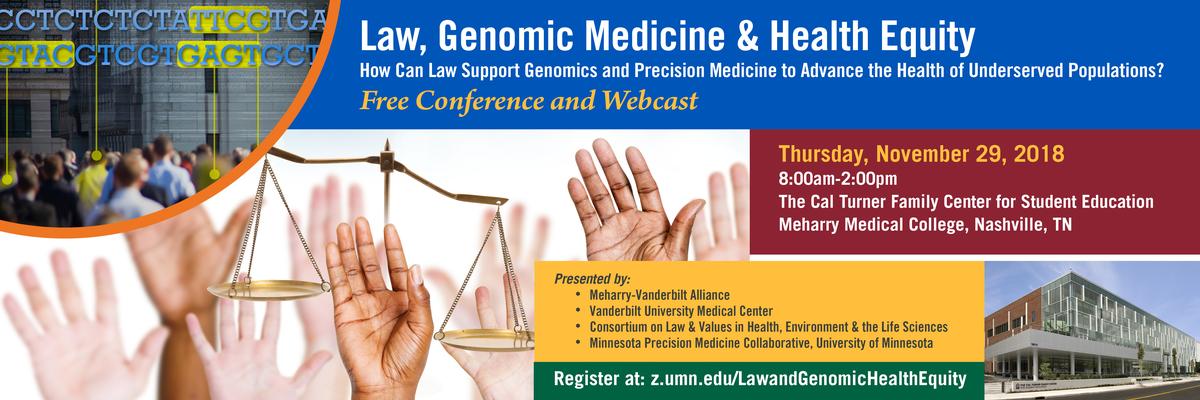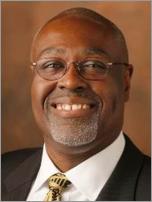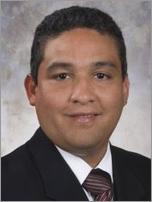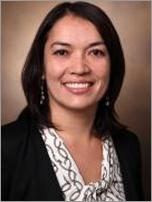
The integration of genomic and precision medicine into health care offers enormous opportunities to improve human health, but there is significant risk that these emerging therapies will worsen inequities instead of alleviating them. The insights of genomic medicine are currently derived from data that fails to include enough members of underserved populations; as a consequence, genomic variant interpretation may, in some cases, be incorrect for members of racial and ethnic minorities in the US. Recruitment and retention of diverse and representative populations of research participants remain a challenge.
The goal of this conference was to investigate what role law and policy are playing in creating these inequities, and what legal and regulatory changes can be made to ensure that genomic and precision medicine don’t replicate or worsen existing health disparities. By assembling leading thinkers, clinicians, scientists, and activists at the intersection of law, policy, genomics, and disparities analysis, this event was the first to focus on the role of law and policy in advancing genomics and precision medicine to promote health equity
Agenda
8:00 am
Welcome
- Veronica T. Mallett, MD, MMM, Senior Vice President for Health Affairs and Dean of the School of Medicine, Meharry Medical College
- Maria F. Lima, PhD, Dean, School of Graduate Studies and Research; Interim Vice President for Research and Innovation, Meharry Medical College
- Ellen Wright Clayton, MD, JD, Craig-Weaver Chair in Pediatrics, Professor of Law, Vanderbilt University; PI, LawSeqSM (NHGRI/NCI # 1R01HG008605)
- Susan M. Wolf, JD, McKnight Presidential Professor of Law, Medicine & Public Policy; Faegre Baker Daniels Professor of Law; Professor of Medicine; Chair, Consortium on Law and Values in Health, Environment & the Life Sciences, University of Minnesota; PI, LawSeqSM (NHGRI/NCI # 1R01HG008605)
8:15 am
Advancing the Health of Underserved Populations through Genomics and Precision Medicine: The Challenge for Law
(moderator: Susan M. Wolf, JD, McKnight Presidential Professor of Law, Medicine & Public Policy; Faegre Baker Daniels Professor of Law; Professor of Medicine; Chair, Consortium on Law and Values in Health, Environment & the Life Sciences, University of Minnesota)
- Dayna Bowen Matthew, JD, PhD, William L. Matheson and Robert M. Morgenthau Distinguished Professor of Law, F. Palmer Weber Research Professor of Civil Liberties and Human Rights, University of Virginia School of Law
Q/A
9:00 am
Addressing Health Care Disparities: When Is Precision Medicine Helpful? Does Law Support or Hinder Progress?
(moderator: Pilar N. Ossorio, PhD, JD, Professor of Law and Bioethics, University of Wisconsin, Madison)
- Shawneequa Callier, JD, MA, Associate Professor, Department of Clinical Research and Leadership; Director of Doctoral Research in the Translational Health Sciences PhD program, George Washington University School of Medicine and Health Sciences
How Can Law and Policy Support Work on Health Disparities & Health Care Disparities?
- Wylie Burke, MD, PhD, Professor, Department of Bioethics and Humanities; Member, Fred Hutchinson Cancer Research Center, University of Washington
 View presentation slides
View presentation slides
Q/A
10:15 am
How Can Precision Medicine Advance the Health of Underserved Populations?
(moderator: Marino A. Bruce, PhD, MSRC, MDiv, Research Associate Professor of Medicine, Health and Society; Associate Director, Center for Research on Men’s Health, Vanderbilt University)
- Olveen Carrasquillo, MD, MPH, Professor of Medicine and Public Health Sciences; Director of the Division of Health Services Research and Policy; Chief of the Division of General Internal Medicine, University of Miami
Is Law a Help or a Threat to the Inclusion of Underserved and Immigrant Populations in Genomic Research?
- Jennifer K. Wagner, JD, PhD, Associate Director of Bioethics Research; Assistant Professor, Center for Translational Bioethics and Health Care Policy, Geisinger Research
Q/A
11:30 am
Break
11:45 am
Legal & Policy Issues Raised by Genomic Research and Biobanking in Research with American Indian & Alaska Native Populations
(moderator: Pamala A. Jacobson, PharmD, FCCP, Distinguished Professor, Department of Experimental and Clinical Pharmacology; Professor of Medicine, Division of Hematology, Oncology and Transplantation; Director of the Institute of Personalized Medicine, University of Minnesota)
- Nanibaa’ A. Garrison, PhD, Assistant Professor, Department of Pediatrics, University of Washington School of Medicine; Treuman Katz Center for Pediatric Bioethics, Seattle Children’s Research Institute
Lessons from Other Health & Behavioral Research in American Indian & Alaska Native Populations
- Spero M. Manson, PhD, Distinguished Professor of Public Health and Psychiatry; Director, Centers for American Indian and Alaska Native Health; Associate Dean of Research, Colorado School of Public Health at the University of Colorado Denver’s Anschutz Medical Center
Q/A
1:00 pm
Lunch with speaker: Pathways Toward Resolving Distrust Among Groups Negatively Impacted by Genomics
(moderator: Ellen Wright Clayton, MD, JD, Craig-Weaver Chair in Pediatrics, Professor of Law, Vanderbilt University)
- Consuelo Hopkins Wilkins, MD, MSCI, Executive Director, Meharry-Vanderbilt Alliance; PI, Vanderbilt-Miami-Meharry Center of Excellence in Precision Medicine and Population Health (NIMHD # 1U54MD010722); Associate Professor of Medicine, Vanderbilt University Medical Center and Meharry Medical College
Q/A
2:00 pm
Adjourn
Speaker Biographies

Marino Bruce, PhD, MSRC, MDiv, CRC, is Associate Director of the Center for Research on Men’s Health (CRMH), Research Associate Professor of Medicine, Health, and Society, and Director of the CRMH Program for Research on Faith and Health at Vanderbilt University. As a social and behavioral scientist, he is interested in the integration of the full range of health determinants for African American males and their risk factors for chronic kidney disease and cardiovascular disease. His current research explores the intersection of religiosity, spirituality, race, gender and behavior and their implications for social and health outcomes among African American boys and men. He is also an ordained Baptist Minister with two decades of experience serving in multiple African American churches, and leverages the strengths of research and faith communities towards efforts to improve the health of disadvantaged and disenfranchised males, their families, and their communities.

Wylie Burke, MD, PhD, is Professor and former Chair of the Department of Bioethics and Humanities at the University of Washington, Adjunct Professor of Medicine (in the Division of Medical Genetics), and Member of the Fred Hutchinson Cancer Research Center. Prof. Burke is an elected member of the National Academy of Medicine, past-President of the American Society of Human Genetics, and former-Chair of the Institute of Medicine Roundtable on the Translation of Genome-based Research for Health. She is also the Founding Director of the University of Washington's Center for Genomics and Healthcare Equality, which has been funded by the National Human Genome Research Institute. Her research grapples with the ethical and policy implications of genomics in medicine and public health, including the translation of novel genomic technologies from bench to clinic.

Shawneequa Callier, JD, MA, is an Associate Professor in the Department of Clinical Research and Leadership and Director of Doctoral Research in the Translational Health Sciences PhD program at the George Washington University School of Medicine and Health Sciences (SMHS). Prof. Callier teaches courses in bioethics and health care law in a variety of programs at SMHS. She is also a Professorial Lecturer in Law at the George Washington University Law School and Special Volunteer at the Center for Research on Genomics and Global Health, National Human Genome Research Institute, NIH, where she has been awarded a 2017 Genome Recognition of Employee Accomplishments and Talents (GREAT) Award for scholarship related to improving diversity and inclusion in genomic research. Professor Callier's research focuses on issues at the intersection of bioethics, law, and emerging technologies. Prior to joining the GWU faculty, Professor Callier completed a post-doctoral fellowship at the Center for Genetic Research Ethics and Law, an interdisciplinary center for excellence funded by the National Human Genome Research Institute and located in the Bioethics Department of Case Western Reserve University’s School of Medicine. Earlier in her career, Professor Callier practiced health care law as an attorney in Washington, DC.

Olveen Carrasquillo, MD, MPH, is Director of the Division of Health Services Research and Policy and a Professor in the Department of Public Health Sciences at the University of Miami Miller School of Medicine. For the last seven years, he has been the Chief of the Division of General Internal Medicine and now also the Chief of Geriatrics and Palliative Care. He oversees a clinical, teaching, and research enterprise of 64 full-time faculty, including six primary care practices and an additional ambulatory hospital based clinic at Jackson Health System (Miami Public Hospital system). Prior to the University of Miami, Carrasquillo was Director of the Center of Excellence in Health Disparities Research at Columbia University. Prof. Carrasquillo is a national expert on minority health, health disparities, community-based participatory research, access to care, and community health worker interventions.

Ellen Wright Clayton, MD, JD, is Craig-Weaver Professor of Pediatrics, Professor of Law, and Co-founder of the Center for Biomedical Ethics and Society, Vanderbilt University. Her research focuses on the ethical and legal issues raised by the conduct of genomics research and its translation to the clinic. Prof. Clayton is an elected member of the National Academy of Medicine (NAM), from which she received the David P. Rall Medal and where she serves where she serves as Co-Chair of the Report Review of the National Academies, and a Fellow of the American Association for the Advancement of Science (AAAS). She has also advised the National Institutes of Health and other federal and international bodies on topics ranging from children's and women's health to the ethical conduct of human subject research. She is currently a Principal Investigator on a project funded by the National Human Genome Research Institute (NHGRI) and National Cancer Institute (NCI) of the National Institutes of Health, LawSeqSM: Building a Sound Legal Foundation for Translating Genomics into Clinical Application (1-R01-HG008605) and in the Center of Excellence in ELSI Research, Genetic Privacy and Identity in Community Settings. She is also an investigator in VUMC’s project in the eMERGE consortium, where she is studying the impact on participants and clinicians of returning genomic research results.

Nanibaa' A. Garrison, PhD, is Assistant Professor in the Division of Bioethics at the University of Washington School of Medicine, where she is active in bioethics research, education, and consultation at the Treuman Katz Center for Pediatric Bioethics. Garrison is a member of the Navajo Nation, where she was born and raised and where both of her parents still live. Prof. Garrison's career has combined genetics with a desire to be involved in studies of health conditions prevalent in American Indian communities. She is Principal Investigator and Project Leader for an NIH grant, “Genomics and Native Communities: Perspective, Ethics and Engagement," and will share her findings with the National Congress of American Indians, a board that represents the interests of many tribes. Its Policy Research Center helps set and influence policy at both the federal level and at the tribal level.

Pamala A. Jacobson, PharmD, FCCP, is a Distinguished Professor and Associate Department Head of Experimental and Clinical Pharmacology in the College of Pharmacy at the University of Minnesota. Dr. Jacobson is the Director of the Institute of Personalized Medicine. She is a Co-PI of the Minnesota Precision Medicine Collaborative which is a University of Minnesota Grand Challenge program developing a research platform and creating a pathway for community engagement in precision medicine for minority communities. The goal of the Collaborative is to advance health equity in Minnesota through application of precision medicine technologies. Dr. Jacobson research focuses on pharmacogenomics of anticancer and immunosuppressive agents.

Maria F. Lima, PhD, is the Dean of the School of Graduate Studies and Research and Interim Vice President for Research and Innovation at Meharry Medical College. A graduate of the Microbiology PhD program at Michigan State University, she joined the faculty of Meharry Medical College in 1990 and is currently a tenured Professor of Microbiology and Immunology. Her area of research is infectious diseases; more specifically, the molecular basis of microbial pathogenesis. As the Dean of the School of Graduate Studies and Research, she has obtained innovative and substantive funding from the National Institutes of Health and the National Science Foundation to enhance graduate training at Meharry Medical College. Under her leadership, the School of Graduate Studies at Meharry has consistently been the top or among the top five institutions that graduate the highest number of African American PhD students in Biomedical Sciences yearly in the US according to “Diverse Issues in Higher Education.”

Veronica T. Mallett, MD, MMM, is Senior Vice President for Health Affairs and Dean of the School of Medicine at Meharry Medical College. In her role as Senior Vice President for Health Affairs, Dr. Mallett is responsible for the quality of health care provided at Meharry and for the maintenance of the health service affiliations that help the College provide exemplary training for its students, residents, and fellows. As Dean of the School of Medicine, she serves as the chief academic and administrative officer of the medical school and oversees its academic programs, research efforts, curriculum, student affairs and fiscal management. Dr. Mallett is also responsible for the academic component of residency programs. Dr. Mallett has been recognized nationally and internationally for her work in the treatment of urinary incontinence and genital organ prolapse as well as her efforts to reduce health disparities. Prior to coming to Meharry in 2017, she served as founding chair and professor at the Paul L. Foster School of Medicine at Texas Tech University Health Sciences Center, El Paso. Dr. Mallett has also held faculty positions at Northwestern University, Wayne State University and the University of Tennessee Health Science Center, serving in roles including Urogynecology Fellowship Director, Residency Director, Director of Health Care Excellence and Safety, Practice Plan Director and Department Chair.

Spero M. Manson, PhD (Pembina Chippewa) is Distinguished Professor of Public Health and Psychiatry, directs the Centers for American Indian and Alaska Native Health, and occupies the Colorado Trust Chair in American Indian Health in the Colorado School of Public Health at the University of Colorado Denver’s Anschutz Medical Center. His programs include 10 national centers, totaling $63 million in sponsored research, program development, training, and collaboration with 250 Native communities, spanning rural, reservation, urban, and village settings across the country. Dr. Manson has published 246 articles on the assessment, epidemiology, treatment, and prevention of physical, alcohol, drug, as well as mental health problems over the developmental life span of Native people. His numerous awards include the American Public Health Association’s prestigious Rema Lapouse Mental Health Epidemiology Award (1998), three special recognition awards from the Indian Health Service (1996, 2004, 2011), election to the National Academy of Medicine (2002), two Distinguished Mentor Awards from the Gerontological Society of America (2006, 2007), the Association of American Medical Colleges’ Nickens Award (2006), the George Foster Award for Excellence from the Society for Medical Anthropology (2006), National Institutes of Health Health Disparities Award for Excellence (2008), and the Bronislaw Malinowski Award from the Society for Applied Anthropology (2019). Dr. Manson is widely acknowledged as one of the nation’s leading authorities in regard to Indian and Native health.

Dayna Bowen Matthew, JD, PhD, is William L. Matheson and Robert M. Morgenthau Distinguished Professor of Law and F. Palmer Weber Research Professor of Civil Liberties and Human Rights at the University of Virginia School of Law. She is the author of the book "Just Medicine: A Cure for Racial Inequality in American Health Care." Matthew previously served on the University of Colorado law faculty as a Professor, Vice Dean, and Associate Dean of Academic Affairs. She was a member of the Center for Bioethics and Humanities on the Anschutz Medical Campus and held a joint appointment at the Colorado School of Public Health. She has also taken on many public policy roles, including co-founding the Colorado Health Equity Project, serving as the senior adviser to the Director of the Office of Civil Rights for the US Environmental Protection Agency, and as a member of the health policy team for US Senator Debbie Stabenow of Michigan.

Pilar Ossorio, PhD, JD, is Professor of Law and Bioethics at the University of Wisconsin, Madison, where she is on the faculty of the Law School and the Department of Medical History and Bioethics at the Medical School. In 2011 she became the inaugural Ethics Scholar-in-Residence at the Morgridge Institute for Research, the private, nonprofit research institute that is part of the Wisconsin Institutes for Discovery. Prof. Ossorio also serves as the Co-Director of UW's Law and Neuroscience Program, as a faculty member in the UW Masters in Biotechnology Studies program, and as Program Faculty in the Graduate Program in Population Health. Prior to taking her position at UW, she was Director of the Genetics Section of the Institute for Ethics at the American Medical Association and taught as adjunct faculty at the University of Chicago Law School.

Jennifer K. Wagner, JD, PhD, is Associate Director of Bioethics Research and Assistant Professor in the Center for Translational Bioethics and Health Care Policy at Geisinger. Her research is multidisciplinary and focused at the intersections of anthropology, genetics, law, and bioethics. During her post-doctoral research appointments at the Duke University Institute for Genome Sciences & Policy and the University of Pennsylvania Center for the Integration of Genetic Healthcare Technologies, she focused on ethical, legal, and social implications of genetic technologies with particular interest in the ways in which personal genetics could be used to mitigate racial disparities in health and justice. Her recent research covers three main areas: DNA ancestry testing, sports applications of personal genetics, and genetic rights as human rights.

Consuelo H. Wilkins, MD, MSCI, is a clinical investigator and engagement researcher who has pioneered methods of stakeholder engagement that involve community members and patients in all stages of biomedical and health research. She is the Executive Director of the Meharry-Vanderbilt Alliance and Associate Professor of Medicine at both Vanderbilt University Medical Center and Meharry Medical College. Additionally, she is an Associate Director of the Vanderbilt Institute for Clinical and Translational Science, where she leads programs in community engagement in the Meharry Clinical and Translation Research Center, the RCMI Program in Health Disparities Research at Meharry, and Mid-South Clinical Data Research Network. Dr. Wilkins is currently a Principal Investigator of the Precision Medicine and Health Disparities Collaborative (PMHDC), which focuses on decreasing disparities among African Americans and Latinos using precision medicine, and of the Vanderbilt Recruitment Innovation Center, a national center dedicated to enhancing recruitment and retention in clinical trials. She was recently named Director of the Engagement Core of the All of Us Research Program, in which she oversees initiatives that meaningfully engage research participants in the governance, oversight, implementation, and dissemination of All of Us. Before moving to Nashville, Dr. Wilkins was an Associate Professor in the Department of Medicine, Division of Geriatrics, with secondary appointments in Psychiatry and Surgery (Public Health Sciences) at Washington University School of Medicine in St. Louis. She served as Founding Director of the Center for Community Health and Partnerships in the Institute for Public Health, Co-director of the Center for Community Engaged Research in the CTSA, and Co-founder of "Our Community, Our Health," a collaborative program with Saint Louis University to disseminate culturally relevant health information and facilitate community-academic partnerships to address health disparities.

Susan M. Wolf, JD, is McKnight Presidential Professor of Law, Medicine & Public Policy; Faegre Baker Daniels Professor of Law; and Professor of Medicine at the University of Minnesota. Prof. Wolf is Chair of the Consortium on Law and Values in Health, Environment & the Life Sciences. She is an elected member of the National Academy of Medicine (NAM) and a Fellow of the American Association for the Advancement of Science. Prof. Wolf's research has been supported by the National Institutes of Health (NIH) and National Science Foundation (NSF) as well as private foundations including the Robert Wood Johnson Foundation and The Greenwall Foundation. She is currently a Principal Investigator on a project funded by the National Human Genome Research Institute (NHGRI) and National Cancer Institute (NCI) of the National Institutes of Health, LawSeqSM: Building a Sound Legal Foundation for Translating Genomics into Clinical Application (1-R01-HG008605) and is a Co-PI of the Minnesota Precision Medicine Collaborative.
Planning Committee

Marino Bruce, PhD, MSRC, MDiv, CRC, is Associate Director of the Center for Research on Men’s Health (CRMH), Research Associate Professor of Medicine, Health, and Society, and Director of the CRMH Program for Research on Faith and Health at Vanderbilt University. As a social and behavioral scientist, he is interested in the integration of the full range of health determinants for African American males and their risk factors for chronic kidney disease and cardiovascular disease. His current research explores the intersection of religiosity, spirituality, race, gender and behavior and their implications for social and health outcomes among African American boys and men. He is also an ordained Baptist Minister with two decades of experience serving in multiple African American churches, and leverages the strengths of research and faith communities towards efforts to improve the health of disadvantaged and disenfranchised males, their families, and their communities.

Ellen Wright Clayton, MD, JD, is Craig-Weaver Professor of Pediatrics, Professor of Law, and Co-founder of the Center for Biomedical Ethics and Society, Vanderbilt University. She is the 2010 recipient of the William G. Bartholome Award for Ethical Excellence from the American Academy of Pediatrics’ Section on Bioethics. Prof. Clayton is an elected member of the Institute of Medicine (IOM), where she serves on the National Advisory Council, and a Fellow of the American Association for the Advancement of Science (AAAS). She has advised the National Institutes of Health and other federal and international bodies on topics ranging from children's and women's health to the ethical conduct of human subject research. She is currently a Principal Investigator on a project funded by the National Human Genome Research Institute (NHGRI) and National Cancer Institute (NCI) of the National Institutes of Health, LawSeqSM: Building a Sound Legal Foundation for Translating Genomics into Clinical Application (1-R01-HG008605).

Pamala A. Jacobson, PharmD, FCCP, is a Distinguished Professor and Associate Department Head of Experimental and Clinical Pharmacology in the College of Pharmacy at the University of Minnesota. Dr. Jacobson is the Director of the Institute of Personalized Medicine. She is a Co-PI of the Minnesota Precision Medicine Collaborative which is a University of Minnesota Grand Challenge program developing a research platform and creating a pathway for community engagement in precision medicine for minority communities. The goal of the Collaborative is to advance health equity in Minnesota through application of precision medicine technologies. Dr. Jacobson research focuses on pharmacogenomics of anticancer and immunosuppressive agents.

Consuelo H. Wilkins, MD, MSCI, is a clinical investigator and engagement researcher who has pioneered methods of stakeholder engagement that involve community members and patients in all stages of biomedical and health research. She is the Executive Director of the Meharry-Vanderbilt Alliance and Associate Professor of Medicine at both Vanderbilt University Medical Center and Meharry Medical College. Additionally, she is an Associate Director of the Vanderbilt Institute for Clinical and Translational Science, where she leads programs in community engagement in the Meharry Clinical and Translation Research Center, the RCMI Program in Health Disparities Research at Meharry, and Mid-South Clinical Data Research Network. Dr. Wilkins is currently a Principal Investigator of the Precision Medicine and Health Disparities Collaborative (PMHDC), which focuses on decreasing disparities among African Americans and Latinos using precision medicine, and of the Vanderbilt Recruitment Innovation Center, a national center dedicated to enhancing recruitment and retention in clinical trials. She was recently named Director of the Engagement Core of the All of Us Research Program, in which she oversees initiatives that meaningfully engage research participants in the governance, oversight, implementation, and dissemination of All of Us. Before moving to Nashville, Dr. Wilkins was an Associate Professor in the Department of Medicine, Division of Geriatrics, with secondary appointments in Psychiatry and Surgery (Public Health Sciences) at Washington University School of Medicine in St. Louis. She served as Founding Director of the Center for Community Health and Partnerships in the Institute for Public Health, Co-director of the Center for Community Engaged Research in the CTSA, and Co-founder of "Our Community, Our Health," a collaborative program with Saint Louis University to disseminate culturally relevant health information and facilitate community-academic partnerships to address health disparities.

Susan M. Wolf, JD, is McKnight Presidential Professor of Law, Medicine & Public Policy; Faegre Baker Daniels Professor of Law; and Professor of Medicine at the University of Minnesota. Prof. Wolf is Chair of the Consortium on Law and Values in Health, Environment & the Life Sciences. She is an elected member of the National Academy of Medicine (NAM) and a Fellow of the American Association for the Advancement of Science. Prof. Wolf's research has been supported by the National Institutes of Health (NIH) and National Science Foundation (NSF) as well as private foundations including the Robert Wood Johnson Foundation and The Greenwall Foundation. She is currently a Principal Investigator on a project funded by the National Human Genome Research Institute (NHGRI) and National Cancer Institute (NCI) of the National Institutes of Health, LawSeqSM: Building a Sound Legal Foundation for Translating Genomics into Clinical Application (1-R01-HG008605) and is a Co-PI of the Minnesota Precision Medicine Collaborative.
Resources
Background articles and websites that may be useful include:
- Amendola LM, Berg JS, Horowitz CR, et al. The Clinical Sequencing Evidence-Generating Research Consortium: Integrating Genomic Sequencing in Diverse and Medically Underserved Populations. American Journal of Human Genetics 2018;103:319-327.
- Bentley AR, Callier S, Rotimi CN. Diversity and Inclusion in Genomic Research: Why the Uneven Progress? Journal of Community Genetics 2017;8(4):255-266.
- Bonham VL, Green ED, Pérez-Stable EJ. Examining How Race, Ethnicity, and Ancestry Data Are Used in Biomedical Research. JAMA 2018;320(15):1533–1534.
- Hindorff LA, Bonham VL, Brody LC, et al. Prioritizing Diversity in Human Genomics Research. Nature 2018;19;175-185.
- Hindorff LA, Bonham VL, Ohno-Machado L. Enhancing Diversity to Reduce Health Information Disparities and Build an Evidence Base for Genomic Medicine. Personalized Medicine 2018;15(5):403-412.
- Joosten YA, Israel TL, Williams NA, et al. Community Engagement Studios: A Structured Approach to Obtaining Meaningful Input from Stakeholders to Inform Research. Academic Medicine 2015;90(12):1646-1650.
- Landry LG, Ali N, Williams DR, et al. Lack of Diversity in Genomic Databases is a Barrier to Translating Precision Medicine Research into Practice. Health Affairs 2018;37(5):780-785.
- Manrai AK, Funke BH, Rehm HL, et al. Genetic Misdiagnoses and the Potential for Health Disparities. New England Journal of Medicine 2016;375:655-665.
- Matthew DB. Just Medicine: A Cure for Racial Inequality in American Health Care. New York: NYU Press 2015.
- National Academies of Science, Engineering, and Medicine: Understanding Disparities in Access to Genomic Medicine: Proceedings of a Workshop. Washington, DC: National Academies Press, 2018.
- National Institutes of Health: All of Us Research Program
- Popejoy AB, Fullerton SM. Genomics is Failing on Diversity. Nature 2016;538:161-164.
- Sabatello M, Callier S, Garrison NA, Cohn EG. Trust, Precision Medicine Research, and Equitable Participation of Underserved Populations. American Journal of Bioethics 2018;18(4):34-36.
- Smedley BD, Stith AY, Nelson AR, eds. Unequal Treatment: Confronting Racial and Ethnic Disparities in Health Care. Washington, DC: National Academies Press, 2003.
- Wagner JK. DNA, Racial Disparities, and Biases in Criminal Justice: Searching for Solutions. Albany Law Journal of Science and Technology 2017;27(2):95-138.
- Watson SD. Lessons from Ferguson and Beyond: Bias, Health, and Justice. Minnesota Journal of Law, Science & Technology 2017;18(1):111-141.
- West KM, Blacksher E, Burke W. Genomics, Health Disparities, and Missed Opportunities for the Nation's Research Agenda. JAMA 2017;317(18)1831-1832.
- Williams JR, Yeh VM, Bruce MA, et al. Precision Medicine: Familiarity, Perceived Health Drivers, and Genetic Testing Considerations Across Health Literacy Levels in a Diverse Sample. Journal of Genetic Counseling 2018;1-10.
This conference was held at:
The Cal Turner Family Center for Student Education
Meharry Medical College
1011 21st Ave. North
Nashville, TN 37208
Presented in collaboration with the Meharry-Vanderbilt Alliance, Vanderbilt University Medical Center, and the Consortium on Law & Values in Health, Environment & the Life Sciences and Minnesota Precision Medicine Collaborative, University of Minnesota. It is part of the NIH-funded LawSeqSM project, which is dedicated to building a sound legal foundation for translating genomics into clinical application.
Articles resulting from this conference will be published in a special symposium of Ethnicity & Disease that will be guest edited by Marino A. Bruce (Vanderbilt University), Vence L. Bonham (National Human Genome Research Institute - NHGRI) and Susan M. Wolf (University of Minnesota).
Continuing Education Credit
Accreditation
Meharry Medical College is accredited by the Accreditation Council on Continuing Medical Education (ACCME) to provide continuing medical education (CME) for physicians.
American Medical Association (AMA)
Meharry Medical College designates this educational activity for a maximum of 5.5 AMA PRA Category 1 Credits.TM Physicians should only claim credit commensurate with the extent of their participation in the activity.
Educational Objectives
Following completion of this activity, learners should be better able to:
- Explain current research at the intersection of law, genomic medicine and health inequities;
- Describe policy and legal tools for minimizing health disparities in the translation of genomic medicine to clinical practice;
- Discuss and propose solutions to protect underserved, immigrant, and vulnerable populations while involving them in genomic research and translational medicine.
Audience
This interactive, comprehensive, informative, session will provide professional education to physicians, nurses, healthcare administrators, allied health professionals as well as attorneys, policy makers, faculty, researchers, students, and interested community members.
Continuing Education Credit Designation for Attorneys:
The Minnesota State Board of Continuing Legal Education has approved 5.5 Continuing Legal Education (CLE) credits for both the live conference and live webcast; Event Code is 262082.
The State of Tennessee has approved Continuing Legal Education (CLE) General 4.50 credits. In-person attendance: Event code is 229922. Live website participation: Event code 230035.